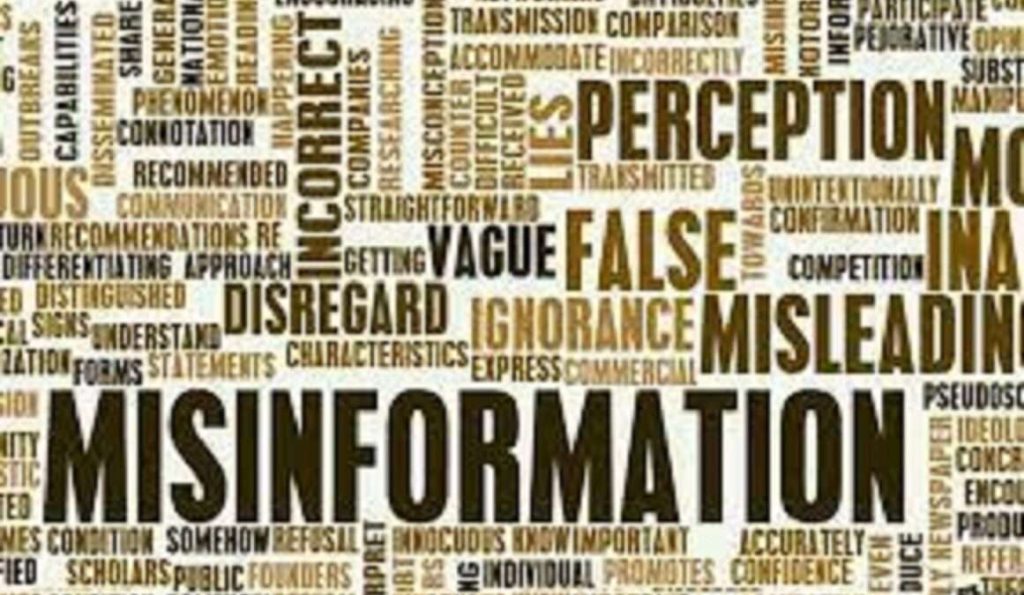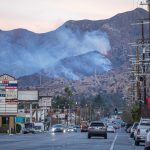Political ignorance and the closely related phenomenon of misinformation are serious problems. But most commentators are far quicker to identify them on the opposing side of the political spectrum than on their own. For that reason, prominent liberal political commentator Matt Yglesias deserves credit for recognizing that left-wing public opinion is far from immune to these dangers. In a recent post, he highlights two types of misinformation that are widely believed by left-liberals: climate catastrophism and massive overestimation of the number of unarmed African-Americans killed by police:
In a democracy, those who govern are accountable to a mass public that overwhelmingly comprises people who don’t think much about politics and policy and who really don’t know much about it. That real-world citizens are not idealized deliberators is a really important aspect of how society functions, and it’s important that everyone who cares about such things try to understand it….
But this whole genre of genuine inquiry into public opinion dynamics has gotten derailed, I think, by the sort of goofy idea that Donald Trump was swept into power by a tidal wave of “misinformation….”
The thing that makes this sort of superficial analysis so seductive is that it’s not exactly wrong. Most people really are very poorly informed about politics and policy. A lot of campaign messaging is pretty misleading. A lot of media coverage is sloppy and propagandistic. It’s also true that as a result of education polarization, over the past few cycles, Democrats have mostly done worse with relatively uninformed demographic groups (poor white people, working-class Hispanics) and better with relatively well-informed high-SES whites. This is to say that if you set out to find misinformation among people voting Republican, it’s not hard to do so. But it’s a totally unprincipled inquiry unless you take a systematic look at misinformation, in which case you’ll see it’s hardly confined to Republicans…..
I think the most salient example of this is climate change, where you not only have rightists spreading insane conspiracy theories (Trump used to say it was a Chinese hoax), but you also have a lot of very influential wrongheaded ideas on the left.
Perhaps the most prominent version of this is the idea that the world faces a hard tipping point to climate apocalypse sometime around 2030. This is routinely debunked (here’s Scientific American) but keeps popping up….
I also think many people don’t realize that natural disaster deaths have become much rarer over time because for most people, the benefits of living in a richer world with better technology far outweigh the hazards of living in a warmer world…..
Meanwhile, in addition to overstating the most likely consequences of the status quo, it’s common to hear grossly exaggerated accounts of the ease of getting to net zero with current technology. That’s often paired with undervaluing energy in general… These are errors that have had meaningful policy and political impacts, but that get totally ignored in a misinformation discourse that locates misinformation exclusively on the right….
One suggestive survey indicated that about 40-50% of liberal or very liberal people believe 1,000 or more unarmed Black men are shot and killed by the police in a typical year. I have a lot of qualms with the methods used in that survey, which I think encouraged overestimation across the board. But if nothing else, it demonstrates that a huge share of the population is operating with very little factual information about a subject it purports to believe is very important. This is not unique to liberals or the topic of police misconduct —it is, rather, fairly typical of average citizens’ general lack of engagement with policy or facts.
For context, the total number of people killed by police in recent years is about 1000 per year, and a plurality of them (389 of 1097 in 2022, as compared to 225 blacks; there were 341 fatalities whose race is unknown) are white. And a large percentage of these fatalities were in fact armed criminals, not innocent people that police shot because of bigotry or just for kicks. Police brutality and racial profiling are serious problems. I recently urged my fellow libertarians to devote more attention to the latter. But the scale and severity of them (at least the former) are far less than much of left-wing public opinion believes.
To Yglesias’ discussion of left-wing misinformation on climate change, I would add that, relative to conservatives and moderates, left-wing Democratic voters are also most likely to oppose nuclear power, by far the most effective “clean” energy source. It should not be hard to see how the combination of catastrophism and opposition to nuclear power is likely to strengthen support for a range of terrible policies.
The two issues Yglesias identifies are just the tip of a much large iceberg of left-liberal political ignorance and susceptibility to misinformation. Other examples include Barack Obama’s highly successful use of lies (“if you like you health insurance, you can keep it”) to sell the Affordable Care Act to the public, disproportionate left-wing susceptibility to 9/11 “trutherism” (a counterpart to right-wing susceptibility to “birtherism”), and much else. An important recent study on economic ignorance underlying NIMBYism suggests that at at least of these misconceptions (that developers, rather than zoning regulations are responsible for high housing prices) is particularly prevalent on the left. As a longtime supporter of housing deregulation and author of The Rent is too Damn High, Yglesias can surely appreciate the significance of this particular type of left-wing ignorance.
Overall, social science research suggests that susceptibility to misinformation cuts across the political spectrum, and isn’t necessarily much greater on one side of it than the other. The fundamental problem is that most voters have little incentive to seek out information about policy issues, or to objectively evaluate what they learn. The are instead rationally ignorant, and often act as biased “political fans” rather than truth-seekers. Yglesias is right to highlight that “[m]ost people really are very poorly informed about politics and policy” and that this is a deeply rooted aspect of democratic politics. And the problem is exacerbated by the enormous size, scope, and complexity of modern government, which makes it difficult for even relatively conscientious voters to have more than a very superficial understanding of most policy issues.
The fact that left-wing voters often behave in these ways should not blind us to the dangers of ignorance and misinformation on the political right, of which Donald Trump’s lies about the 2020 election are just one particularly egregious example. He effectively exploited political ignorance and misinformation in 2016, as well. I think Trump’s lies and deceptions are, overall, worse than those of Obama before him, and have caused greater harm. But even if you believe the reverse, you still should not give your side of the political spectrum a pass, or assume that ignorance and misinformation only exist on the other side.
In many cases, it’s possible to argue that ignorance and misinformation isn’t causing much harm or is even having beneficial effects. For example, perhaps excessive fear of climate change has the beneficial effect of pushing progressives to work harder on finding a solution. Or perhaps it’s a useful counterweight to climate change denialism on the right. “Miracle of aggregation” theorists argue that the errors of one side of the political spectrum can offset those of the other, leading the public as a whole to make good decisions.
In Democracy and Political Ignorance, I describe a number of scenarios where political ignorance can actually be beneficial. But I also explain why such cases are likely to be rare, and why “miracles of aggregation” are unlikely to occur in plausible real-world circumstances (though it’s easy to construct theoretical models where they happen frequently). If you find yourself attracted to a story in which your own side’s ignorance and bias just happens to have beneficial effects, while that of the other side is uniformly harmful, there’s a good chance you’re being misled by your own biases. At the very least, it pays to be skeptical of such stories.
In my view, the best approach to addressing widespread voter ignorance and bias is to empower people to make more decisions by “voting with their feet” and fewer at the ballot box. Foot voters have much better incentives to seek out relevant information and use it wisely than ballot-box voters do. Yglesias likely has a very different perspective on what should be done. I certainly can’t resolve that longstanding debate here. But the beginning of wisdom is to recognize that the problem is widespread and not just confined to the terrible people on the other side of the political spectrum.
The post Political Ignorance and Misinformation on the Left appeared first on Reason.com.







